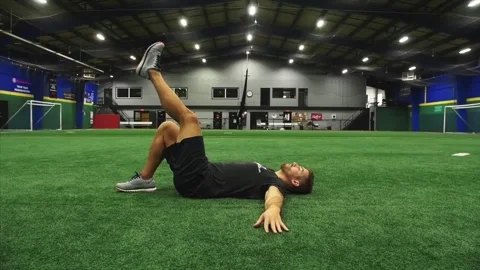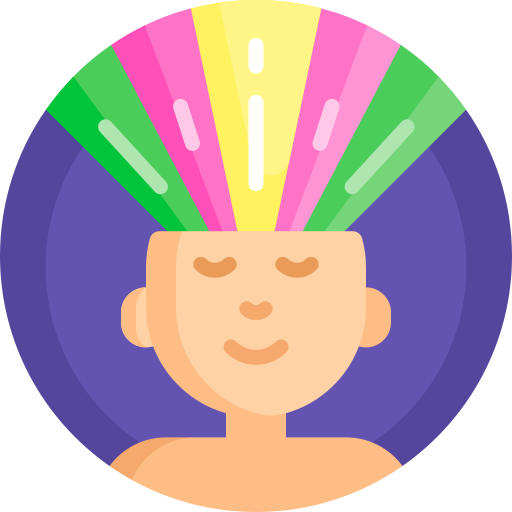Feeling nervous before a big sports event? You’re not alone — mental preparation is just as important as physical training. Mindfulness is the practice of staying present and aware, which can help athletes manage stress and perform at their best.

By following some mindfulness exercises, you'll be more mentally prepared for any sports or physical activities you want to do.
Mindfulness & Its Benefits
What is mindfulness?
Mindfulness is a technique that helps you become more self-aware of your mind, body, or surroundings. It helps people respond to difficult thoughts or feelings, as well as being kinder towards themselves.
What are the benefits of mindfulness exercises?
During sports or physical activities, mindfulness can help you with:
Reducing anxiety when you're competing, or if you feel nervous and stressed. 😰
Improving your ability to focus for longer periods of time. 🎯
Faster recovery by promotion of muscle relaxation. 💆♂️
Greater mental resilience by developing the ability to bounce back from failures. 💪
Quiz
During a big competition, Alex starts feeling overwhelmed after making a mistake. Their thoughts are racing, and they struggle to focus on the next play. Which mindfulness techniques could help Alex stay in the game?
1. Mindful Warm-up
A mindful warm-up combines physical movement with mental awareness, helping you prepare both your body and mind for exercise. As a mindfulness exercise, it's a good way to prepare yourself before you start any physical activity.
Follow the tips in this video to start your mindful warm-up routine:
When you start your warm-up, begin slowly while staying aware of any sensations you feel. Mentally check each part of your body as you start to move and note any tension or stiffness.
2. Visualization
Try to engage all five senses (sight, sound, smell, taste, and touch) when you're visualizing. This mindfulness exercise can be particularly useful as part of a pre-performance routine.
Closing your eyes and imagining yourself successfully performing a physical activity is a good way to mentally prepare, build muscle memory, and build confidence. Try to engage all senses when you're visualizing. This can be particularly useful as part of a pre-performance routine.
How to practice visualization:
Find a quiet space.
Close your eyes and take deep breaths.
Picture yourself performing the activity with confidence.
Engage your senses and emotions.
Repeat regularly before training or competitions.
3. Mindful Stretching
One of the most common ideas connected to sports and well-being is stretching, which helps with flexibility and mobility, and reduces injury risk. Stretching is very important and you should be doing it every day.
Follow the tips in this video to start your mindful stretching routine:
Mindful stretching tips:
Begin each stretch with a deep inhale and extend the movement as you exhale. 🌬️
Maintain slow, controlled breathing to promote relaxation and focus. 😌
Pay attention to how each stretch feels in different muscle groups. 🤔
Avoid overstretching—listen to your body’s limits without forcing movements. ⚠️
Instead of rushing through stretches, stay present with each movement. 🕰️
4. Deep Breathing
Breathing correctly can help the flow of oxygen to the muscles and delay fatigue. Being able to control your breathing also helps calm the nervous system and reduce anxiety.
Slow, deep breathing is a mindfulness exercise that can lower your heart rate and blood pressure, allowing you to be more composed under pressure. The general idea during training is to inhale during relaxation and exhale during exertion.
Follow the tips in this video to start your mindful breathing routine:
Here are some extra breathing techniques you can try:
Diaphragmatic (belly) breathing — deep breaths through the nose into the diaphragm, useful for relaxation.
Box breathing (4-4-4-4) — inhale, hold, exhale, and hold (each for 4 seconds) to reduce stress.
Nasal breathing — helps regulate oxygen intake and maintain a steady pace during endurance activities.
Mindfulness Exercise Quiz

Which of these statements are true about mindfulness exercises to prepare for sport and physical activity?
Choose all that apply:
A. A mindful warm-up combines physical movement with mental focus, helping people to prepare both physically and mentally.
B. Mindfulness exercises are primarily useful for relaxation, rather than performance.
C. Doing a mindful stretch is great for not only flexibility but also helps reduce anxiety.
D. While some mindfulness techniques can be beneficial, they're only useful for beginners.
Quiz
Which statements above are true?
Take Action
By practicing these mindfulness exercises regularly, you'll enhance your sports performance and build the mental resilience needed to stay focused, calm, and ready for any sports or physical activity you choose to do!

Your feedback matters to us.
This Byte helped me better understand the topic.


